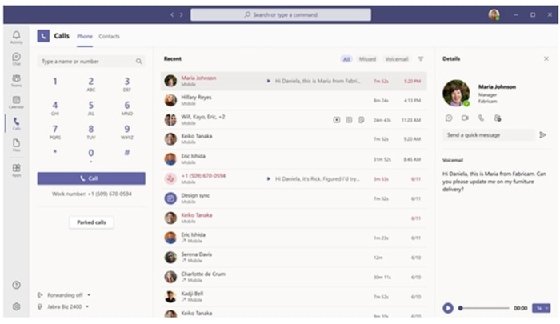
Getty Images
Microsoft bolsters Teams Operator Connect options
Microsoft plans to bring more telephone companies into its Teams Operator Connect program. The initiative pairs telcos with integrators experienced with Teams telephony.
Microsoft will make it easier for telcos to tie their calling services to Teams by directing them to integrators who will help with the process. The initiative could increase competition for companies using the collaboration platform.
This week, Microsoft said it would bring more communication service providers into its Operator Connect program that links the public switched telephone network to Teams. With more providers to choose from, Teams customers could get better deals.
The initiative, called Operator Connect Accelerator, brings telephone companies and integrators together to develop APIs, provide session border controller as a service and integrate operator platforms with Teams. Integrators Audiocodes, NuWave Communications, Ribbon and Sippio have joined Accelerator.
Through Accelerator, Microsoft intends to meet demand on two fronts, Tom Arbuthnot, the founder of Teams training firm Empowering.Cloud, said. There's a backlog of phone companies trying to join Operator Connect, while many Microsoft customers want to consolidate their communications services.
"Lots of organizations that went to Teams meetings during the pandemic are now doing a project to take out their old-school phone systems and switch to Teams," Arbuthnot said.
Operator Connect, launched in September, is one of three ways to connect phone services to Teams. Businesses can also purchase a calling plan from Microsoft or connect their existing phone service to Teams through Direct Routing.

However, the other two methods have drawbacks. Microsoft calling plans force customers to buy a block of minutes every month, and companies typically end up using only 60% of the minutes they purchase, Metrigy analyst Irwin Lazar said. Direct Routing requires technical expertise, as companies need to configure a session border controller and use the PowerShell scripting language to assign phone numbers to employees.
Operator Connect offers simplified sign-up and management within Teams, and companies can pay for only the minutes they use. The program is most beneficial to small or midsize businesses, as large enterprises likely need Direct Routing's flexibility, Lazar said.
"[Operator Connect] is a much easier way, and generally a much cheaper way, of getting PSTN connectivity," Lazar said.
Operator Connect has drawn the attention of many enterprises. About 41% of Teams phone customers plan to use Operator Connect -- the same percentage that intends to use Direct Routing, according to a 451 Research survey of 500 IT decision-makers.
With Accelerator, Microsoft wants to use Teams' advantage over UCaaS competitors. While Zoom Phone allows companies to bring their carrier and Cisco partners with several companies for Webex Calling, neither have the breadth of options or openness Teams has, Lazar said.
But the broad choice of carriers comes at a price. Companies that want to use Teams for calling must have the most expensive Microsoft 365 license or purchase a separate phone license. Other platforms don't require a separate purchase.
Too much choice could also confuse customers. Microsoft must ensure customers can find the provider that fits their needs instead of just giving them a list of options, Lazar said.
Mike Gleason is a reporter covering unified communications and collaboration tools. He previously covered communities in the MetroWest region of Massachusetts for the Milford Daily News, Walpole Times, Sharon Advocate and Medfield Press. He has also worked for newspapers in central Massachusetts and southwestern Vermont and served as a local editor for Patch. He can be found on Twitter at @MGleason_TT.






